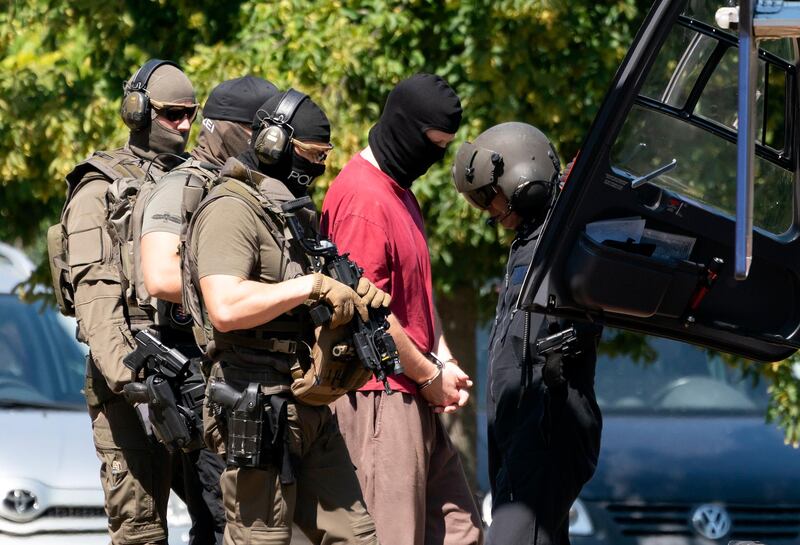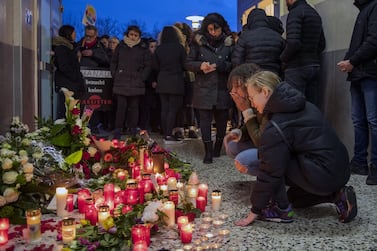Two suspected far-right extremists have been charged in connection with the murder of German mayor Walter Luebcke, who had supported the country's Welcome policy for refugees.
Luebcke was murdered outside his home in Wolfhagen, central Germany, on the evening of June 1 last year.
On Wednesday, German prosecutors formally charged 45-year-old Stephan Ernst with his murder.
It is alleged he drove to Luebcke's house and shot him in the head.
Mr Ernst's "racism and xenophobia founded on an ethnic-nationalist attitude were decisive in the act", prosecutors said in a statement.
The suspect and his fellow accused, identified as Markus H, had attended a political meeting in October 2015 where Luebcke had argued in favour of accommodating refugees in the town of Lohfelden.
Mr Ernst "from the time of the meeting increasingly projected his xenophobia onto Dr Luebcke," a regional politician from Chancellor Angela Merkel's centre-right CDU party, prosecutors said.
It is alleged Mr Ernst had been spying on Luebcke in preparation for the murder and had repeatedly travelled to the politician's house.
His co-defendant, Markus H, was charged with complicity in the murder. On his arrest, he was found to be in possession of a deactivated submachine gun.
He is accused of helping Mr Ernst to train with firearms in forests and at gun clubs between 2016 and 2018, "including with the murder weapon".
Mr Ernst had inflicted "serious wounds" to the chest and spine of an Iraqi asylum-seeker living in Lohfelden in a January 2016 knife attack that left the victim in intensive care.
At the time of his initial arrest last June, the main suspect in Luebcke's killing held "several firearms and ammunition that he had acquired illegally", prosecutors said, including three revolvers, two automatic pistols, two rifles, 1,400 rounds of ammunition and a submachine gun.
After the arrests, Mr Ernst had initially confessed to Luebcke's murder, but in January he retracted the admission and claimed his co-accused had shot the politician.
But prosecutors remain convinced that while his co-accused "accepted and supported" the danger Mr Ernst posed, he "was not familiar with the actual plans for the attack".
The killing was followed by an October attack on a synagogue in the eastern city of Halle that killed two people.
In February, gunman Tobias Rathjen shot nine people with a migration background in Hanau, near Frankfurt, before killing himself and his mother.
Perpetrators in both attacks posted race hate comments online, and Interior Minister Horst Seehofer has since declared far-right extremism the "biggest security threat facing Germany", promising a beefed-up security response.







